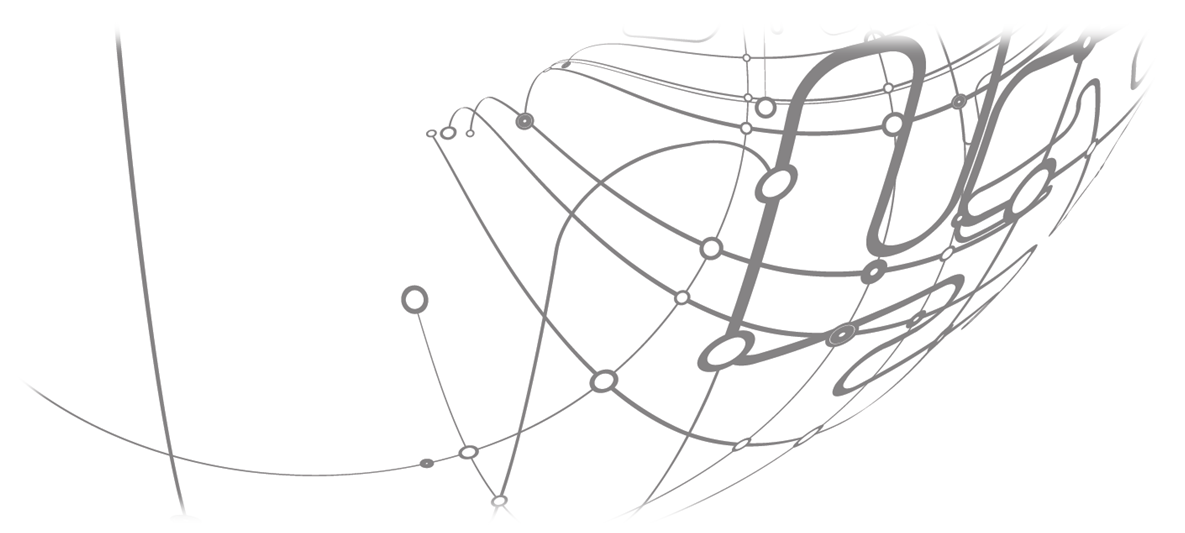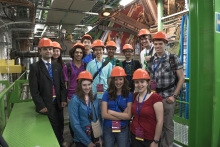
Intel International Science and Engineering Fair Special Award Winners Visit CERN
From 22th till 28th June 2013, a total of 12 finalists of the Intel International Science and Engineering Fair who won the CERN Special Award were given the opportunity to visit CERN and to partake in various educational lectures. The pre-college students with projects in Physics and Astronomy, Computer Science, Electrical and Mechanical Engineering, Mathematics, and Bioengineering participated in the Intel ISEF competition that is offering a yearly forum for more than 1,500 high school students from around 70 countries to showcase their independent research tackling challenging scientific questions.
The students visited, among others, the CERN Control Centre, CMS and ATLAS facilities, and enjoyed presentations from several prominent physicists and engineers as well as had the chance to discuss their science projects with Director General of CERN, Dr. Rolf Heuer.
Elizabeth Ashmore, the a laureate of the Computer Science Award, explained her motivation in visiting CERN: “The most important accomplishment in any scientific endeavor, in my opinion, is to make a positive impact. I believe CERN is extremely successful in accomplishing this.”
Ashwin Ramachandran, whose project involved developing a mathematical cellular model pertaining to novel cancer treatment therapies, referred to his future career plans: “I want to be a researcher. I am torn between studying mathematics and physics. The visit to CERN has shown me you can have the best of these two worlds right there in one place.”
The ISEF 2013 winners’ visit was possible due to the CERN Special Award established in 2009. This award is supported by cooperative grants from the Intel Corporation and the CERN IT Department, which joins forces with Intel in the framework of CERN openlab. 2013 marks already the fifth year that young ISEF finalists from all over the world applied through rigorous CERN online application process involving a face-to-face interview, an online test as much as individual performance evaluation of students’ projects
This year’s winners are Fabian David with Building and Programming of a 3D-Scanner, Elisabeth Anne Ashmore with Breaking the Silence: A Software-Based Brain-Computer Interface For Individuals with Severe Upper-Body Paralysis, Dhaivat Nitin Pandya with A Statistical Approach to Reduce Perceived Latency in Network Filesystems, Yousuf Mounir Soliman with Developing New Artificial Intelligence Techniques for the Use In a Biomedical Image, Ionut Alexandru Budisteanu with Using Artificial Intelligence to Create a Low Cost Self-driving Car, Ema Linnea Parker with Robotic Assessment of Seed Vitality, Zeyu Liu with A Novel Modular Repulsive Type Hybrid Magnetic Bearing for FES Systems, Valerie Youngmi Sarge with Novel Materials for Organic Solar Cells, Ashwin Ramachandran with A Novel Mathematical Model of Cellular Apoptosis under the Influence of Hsp70, Colin Campbell Aitken with Dots and Lines: A Combinatorial Interpretation of the Homotopy Groups of Finite Topologies, Vincent Shian Cao with Superconductivity Emerging from Diamagnetism and Non-Fermi Liquid Behavior in a New Class of Chalcogenides and Jennifer Ann Csele with Creating PEAS: Portable Elemental Analysis System - Developing and Implementing a Novel Cold Cathode Source.
=======================================================================
Further details about the visit programme, the students and their projects are available here.
Selection of previous years' coverage:
One of the 2012 students posted a blog post related to her experience at CERN.
CERN Bulletin Issue: 30/2012 & 31/2012, Mon 23 Jul 2012.
Interviews of the CERN Special Award winners 2011 on the CMS experiment YouTube TV.
Eliza McNitt's documentary about her group's visit in 2009.











